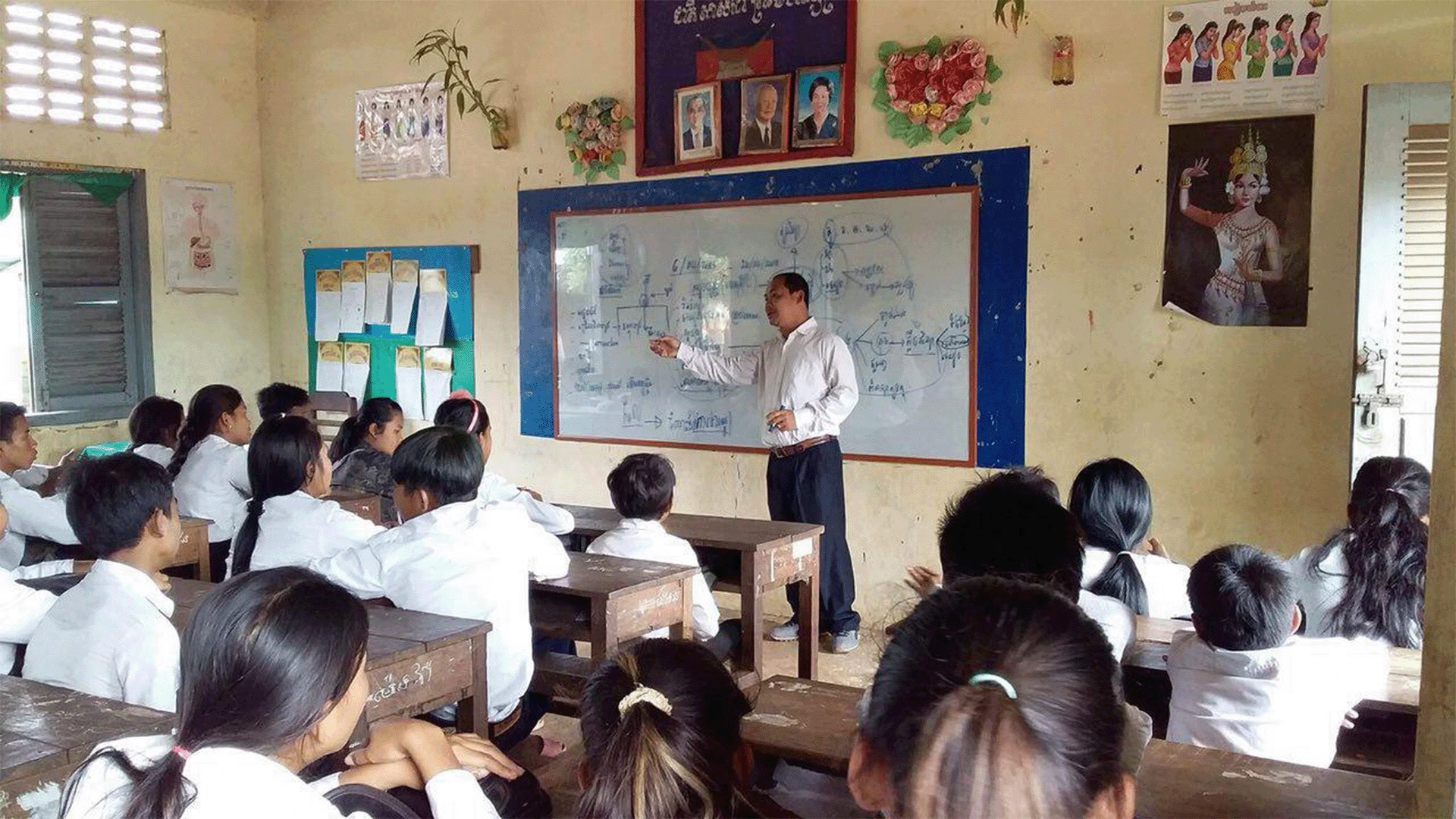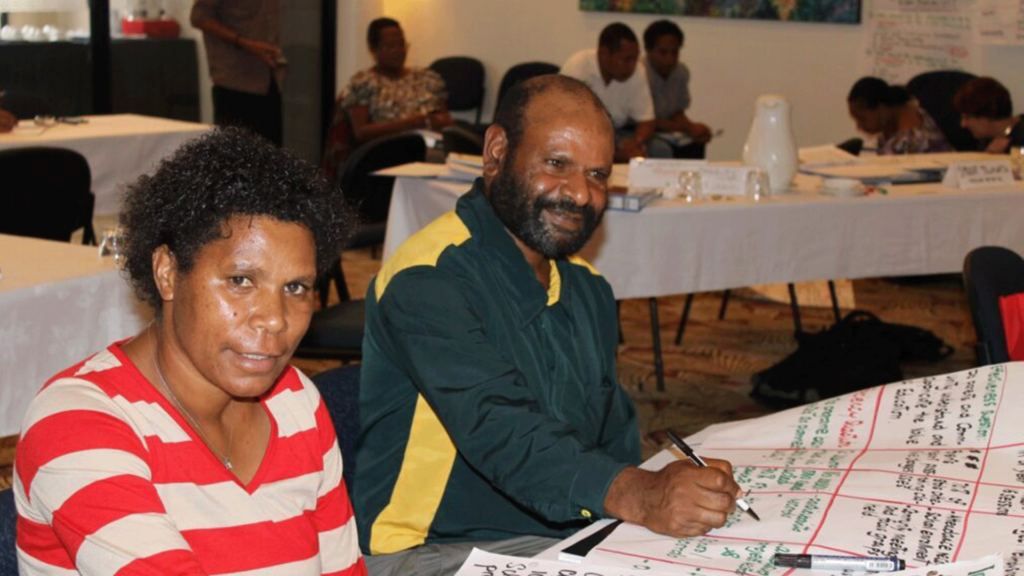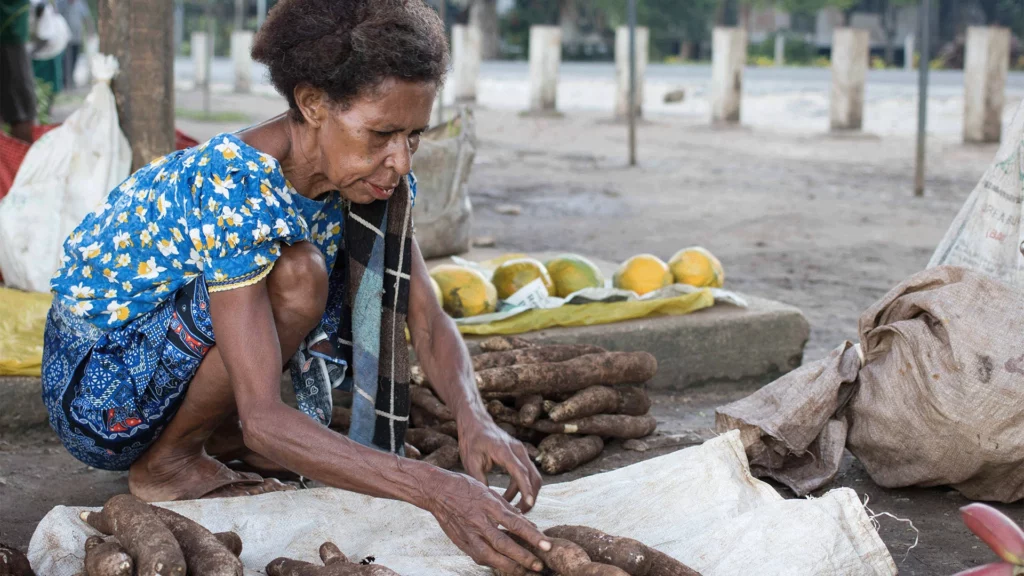
Tetra Tech International Development supported Cambodia’s Ministry of Education, Youth and Sport, funded by the Asian Development Bank, to address some of the challenges facing the education sector in Cambodia, including through improved infrastructure, stronger sub-sector management and quality education.
Situation
Cambodia has made significant progress in the past few decades in improving their education system. However, schools in remote and disadvantaged areas continue to face challenges affecting children’s learning. Remote schools are generally over-crowded, suffer from a lack of qualified teachers and poor facilities. Most students are from poor families and have low motivation to attend schooling which results in many children dropping out at an early age.
By 2030 Cambodia plans to achieve the status of an upper-middle-income country, and a high-income country by 2050. The Royal Government has placed high importance on strengthening Cambodia’s human resource development to improve its competitiveness in an increasingly open regional labour market in ASEAN.
Solution
To support the Royal Government of Cambodia, reach its goals by supporting children’s education, the Asian Development Bank (ADB) and the Ministry of Education designed the third phase of the Education Development Sector Program, the Third Education Sector Development Program (ESDP III, the Program).
We supported ADB and the Cambodian Ministry of Education, Youth and Sport (MOEYS) to address equity, quality and efficiency issues ensuring the basic education system, particularly for children in years’ seven – nine. This was achieved by expanding access to lower secondary education, improving the quality of lower education, and improving sub-sector management.
The Program supported the Royal Government of Cambodia’s Education Strategic Plan 2009-2013. This set the framework for meeting the goals in the Education for All National Plan 2003-2015. The Program supported policy reforms ensuring student progression from primary to lower secondary education; directing resources to schools to meet local needs, strengthening school-based management, community involvement for improving school performance, standards monitoring, and streamlining administration of basic education.
Result
Key outcomes of the program included:
- Expanding access to lower secondary education by building new lower secondary schools and classrooms
- Providing teacher housing as an incentive to attract and retain teachers in remote areas
- Improving water and sanitation facilities contributing to a hygienic school environment
- Promoting the value of Basic education throughout communities
- Piloting School Improvement Grants and introducing a school-based enrichment program
- Strengthening maths and science education through piloting in-service teacher training programs
- Increasing the relevance of classroom learning by promoting a stronger link to the world of work integrating employability skills throughout the curriculum
- Improving sub-sector management by building capacity for school-based management and instructional leadership
- Strengthening school support committees
- Introducing basic education school clusters
- Introducing action research for problem solving and policy formulation.
We were proud to participate in the project which resulted in improved attendance rates in secondary education in Cambodia. This was achieved through improved infrastructure, stronger sub-sector management and a higher-quality of education in partnership with the ADB, MOEYS and Royal Government of Cambodia.
Client
Cambodia Ministry of Education, Youth and Sport, funded by the Asian Development Bank (ADB)
Location
Cambodia
Duration
2013 – 2018


